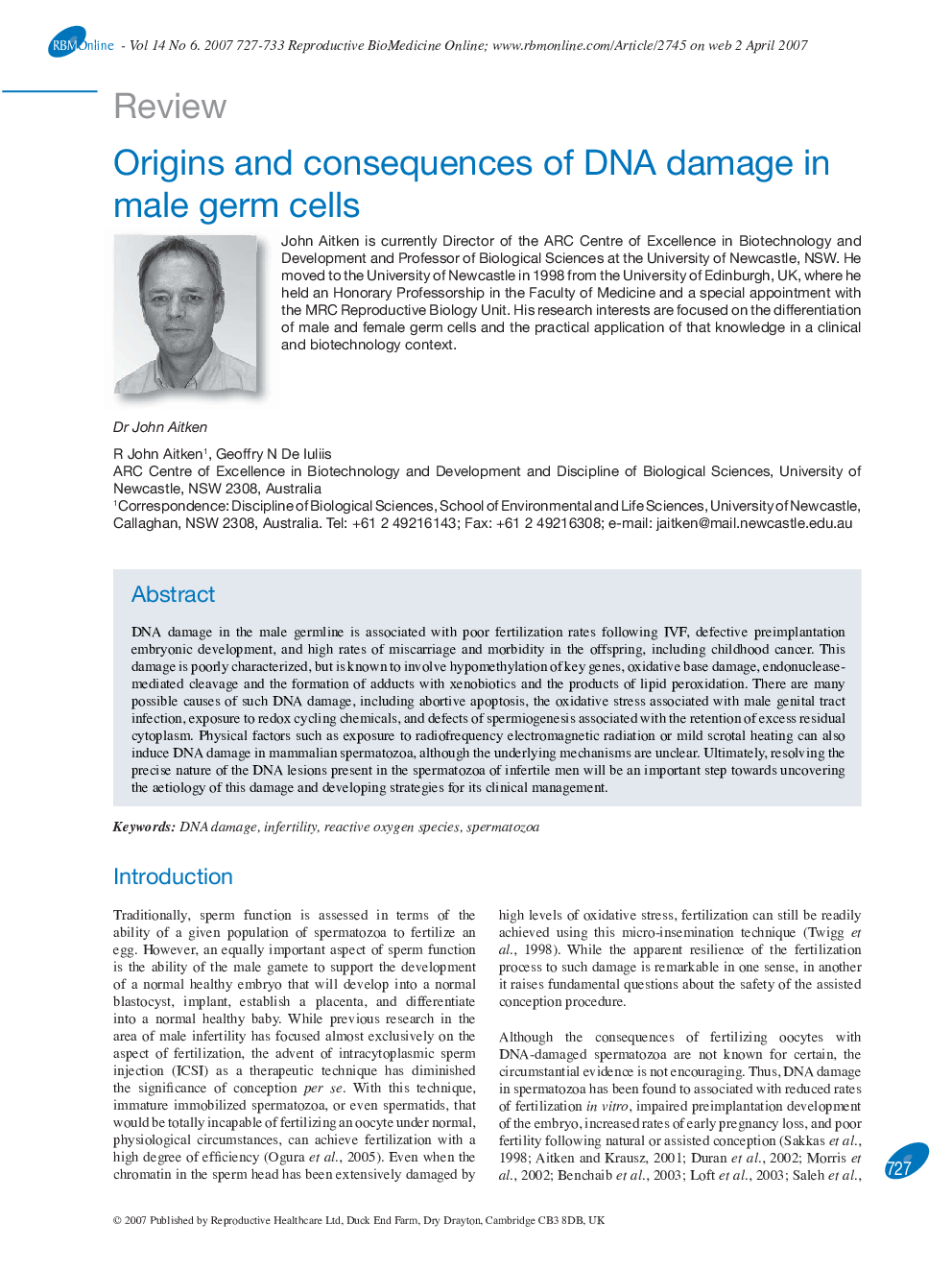| Article ID | Journal | Published Year | Pages | File Type |
|---|---|---|---|---|
| 3973461 | Reproductive BioMedicine Online | 2007 | 7 Pages |
DNA damage in the male germline is associated with poor fertilization rates following IVF, defective preimplantation embryonic development, and high rates of miscarriage and morbidity in the offspring, including childhood cancer. This damage is poorly characterized, but is known to involve hypomethylation of key genes, oxidative base damage, endonuclease-mediated cleavage and the formation of adducts with xenobiotics and the products of lipid peroxidation. There are many possible causes of such DNA damage, including abortive apoptosis, the oxidative stress associated with male genital tract infection, exposure to redox cycling chemicals, and defects of spermiogenesis associated with the retention of excess residual cytoplasm. Physical factors such as exposure to radiofrequency electromagnetic radiation or mild scrotal heating can also induce DNA damage in mammalian spermatozoa, although the underlying mechanisms are unclear. Ultimately, resolving the precise nature of the DNA lesions present in the spermatozoa of infertile men will be an important step towards uncovering the aetiology of this damage and developing strategies for its clinical management.
